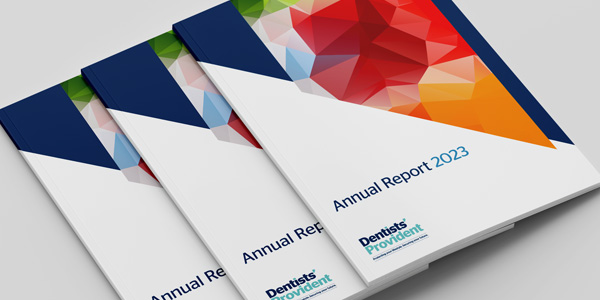
From what you read in the media to what you see in front of you on a daily basis, you know better than anyone that most people place less value on their oral health than other types of health and wellbeing. With National Smile Month from mid-May to mid-June this year and further evidence showing the strong link between bad oral hygiene and systemic health conditions, now might be a good time to remind your patients why it’s so important to look after their mouths.
The facts
This year the Oral Health Foundation is celebrating the achievements of National Smile Month over the past 41 years, but they are still highlighting some worrying facts and figures:
That said, the state of the nation’s mouths have improved as techniques and materials have developed and greater awareness of the importance of good oral health has increased. For example, the number of adults with 21 or more natural teeth has risen to 86% and now only 6% of UK adults don’t have natural teeth compared to 37% in 1978, but there remains a lot to do.
The new NHS contract is hoping to take this progression a stage further with more emphasis on education and a preventive approach. The focus will be on helping patients understand their responsibilities and the importance of good oral health.
Capitation plans have encouraged this approach for years, educating patients on the importance of their oral health and returning regularly to see the dental team to check on their progress. While the preventive approach isn’t a new one, there is still room for improvement and further research is needed to show how we can implement oral health education in an effective way.
The standards
NICE published guidance in December 2015 detailing, amongst other things, how general dental practice teams can give advice about oral hygiene.
The guidance suggests how dental professionals give oral health advice during dental exams, using the messages in ‘Public Health England's, Delivering better oral health: an evidence based toolkit for prevention’ and by doing so will adopt a patient-centered approach. This advice includes oral hygiene routines and the use of fluoride. It also indicates that it is important for a practice team to tailor it to each individual’s needs and this should include different formats and media.
Latest thinking
Many papers are written on how, who and when to educate further the public on oral health advice and how we can make it more of a priority to people. Last August a paper was published posing the question, ‘Is oral health promotion within dental practice effective and how can its effects be optimised?’ The study used the NICE public health guidance checklists and reviewed 44 studies from 52 papers right back to 1994.
The results showed that oral health promotion that was based on behavioural and psychological models was the most effective for improving oral health. Verbal advice increased a patient’s current knowledge while written advice, such as leaflets, promoted the information to increase that knowledge. There was also some evidence in the papers that the communication skills of the person giving the advice had an influence on how effectively it was delivered however, out of all the research that was read, they noted that there were still barriers to effective promotion of oral health in practice. NICE also produce guidance on a set of principles that can be used to help people change their behaviour and adopt a healthier lifestyle.
The Cochrane Library also promoted a new report last September looking at ‘Oral health education (advice and training) for people with serious mental illness’. Not surprisingly, they found that patients from this group, who were at a higher risk of oral disease than the rest of the population, had better plaque scores if they received oral health education. They also produced a report at the beginning of last year that looked at using virtual reality solutions, again looking at different media to communicate effectively with different patient groups.
Whose responsibility is it?
Ultimately it is of course down to the individual to care about the health of their own teeth and gums; like it is for all of us. Commercial oral hygiene companies do their bit to promote good oral hygiene techniques and new research, but as a commercial business, ultimately their profitability will come first. The buck then obviously stops with the dental team and how you choose to share out that responsibility can be very different for each practice. If you are lucky enough to have a dedicated oral health educator in your team, it can be a more straightforward approach as every patient is likely to engage with them on their visit.
Ben Atkins dentist, BDA rep and owner of a chain of practices in Manchester said, “Being one of the first pilot practices for the new NHS contract it was important that we found a system to ensure our patients had enough time to receive their care, treatment and preventive advice. As well as us being able to cost effectively complete the many computer screens during their relatively short visit. We did this by the patient spending time with the dentist, oral health educator and by them watching a short video, in this way they felt that they had a great deal of personal attention, as their appointment was longer (30 minutes rather than 15) and they had different methods of learning and care. This ensured that we could see as many patients as we had with the old system. An approach similar to this is now implemented in all of my practices."
The GDC’s Scope of Practice in 2009 added the additional skills and responsibilities for dental nurses at the same time as they went onto the GDC register. These, of course, require taking further training, such as those to be an oral health educator, and the National Examining Board for Dental Nurses support these extended duties with post certificate qualifications, such as the Certificate in Oral Health Education.
The main focus of these qualifications is based on learning the communication skills to effectively educate patients about their oral health. An oral health educator can complement the team, by dedicating time to talk to patients in a way that is effective for them to understand and prevent future disease in their mouth. They can also help to increase sales of oral hygiene products and other services the practice offer. The BDA also do an Oral Health Education course for dental nurses detailing how to ‘learn the communication skills needed to educate your patients about their oral health.’
There are also apps and other helpful resources in the public domain, such as the BDA-endorsed Brush DJ app www.brushdj.com which is featured in the new NHS Digital Apps Library https://apps.beta.nhs.uk/ .
Ben Underwood, creator of the app and NHS Innovation Accelerator Fellow said, “We know the cause of tooth decay and we know how to prevent it. The first challenge is getting evidence-based self-care information to our patients and the public. The second challenge is getting them to take notice. The final and far greater challenge is motivating them to carry out the daily tasks needed to maintain oral health effectively, every single day! Apps on mobile devices offer us a cost-effective way to engage with people anytime, anywhere and using music can make daily oral hygiene tasks fun and therefore more likely to happen.”
Ultimately it’s for each and every one of us who work in the dental industry to try to educate and inform everyone who crosses our path, that they only have one set of teeth so should look after them like they are as precious as diamonds…
References available on request.
This article is intended for information only. It is not designed to give financial or medical advice, nor is it intended to make any recommendations of the suitability of our plans for a particular individual. Full details of our contract can be found in our rules on our website www.dentistsprovident.co.uk. Dentists’ Provident Society Limited does not accept liability and responsibility for changes made to this information. Some of the information in this article has been obtained from third parties. While we believe the information to be reliable; we make no representations as to its accuracy and accept no responsibility or liability for any error, omission or inaccuracy in the data supplied by any third party.
If you have any questions, please contact our member services consultants by emailing press@dentistsprovident.co.uk or calling 020 7400 5710.
If you have any questions, please contact our member services consultants by emailing
memberservices@dentistsprovident.co.uk or calling 020 7400 5710.

Our 2024 Annual General Meeting will be held at 91-94 Saffron Hill, London, EC1N 8QP on Friday 24th Ma…
Read more
The 2023 annual report from Dentists’ Provident, a leading income protection provider for dental profe…
Read more
Our next exhibition is the British Dental Conference & Dentistry Show in May, where we look forward to meeting anyone interested in becoming a member or members wanting to discuss their plans.